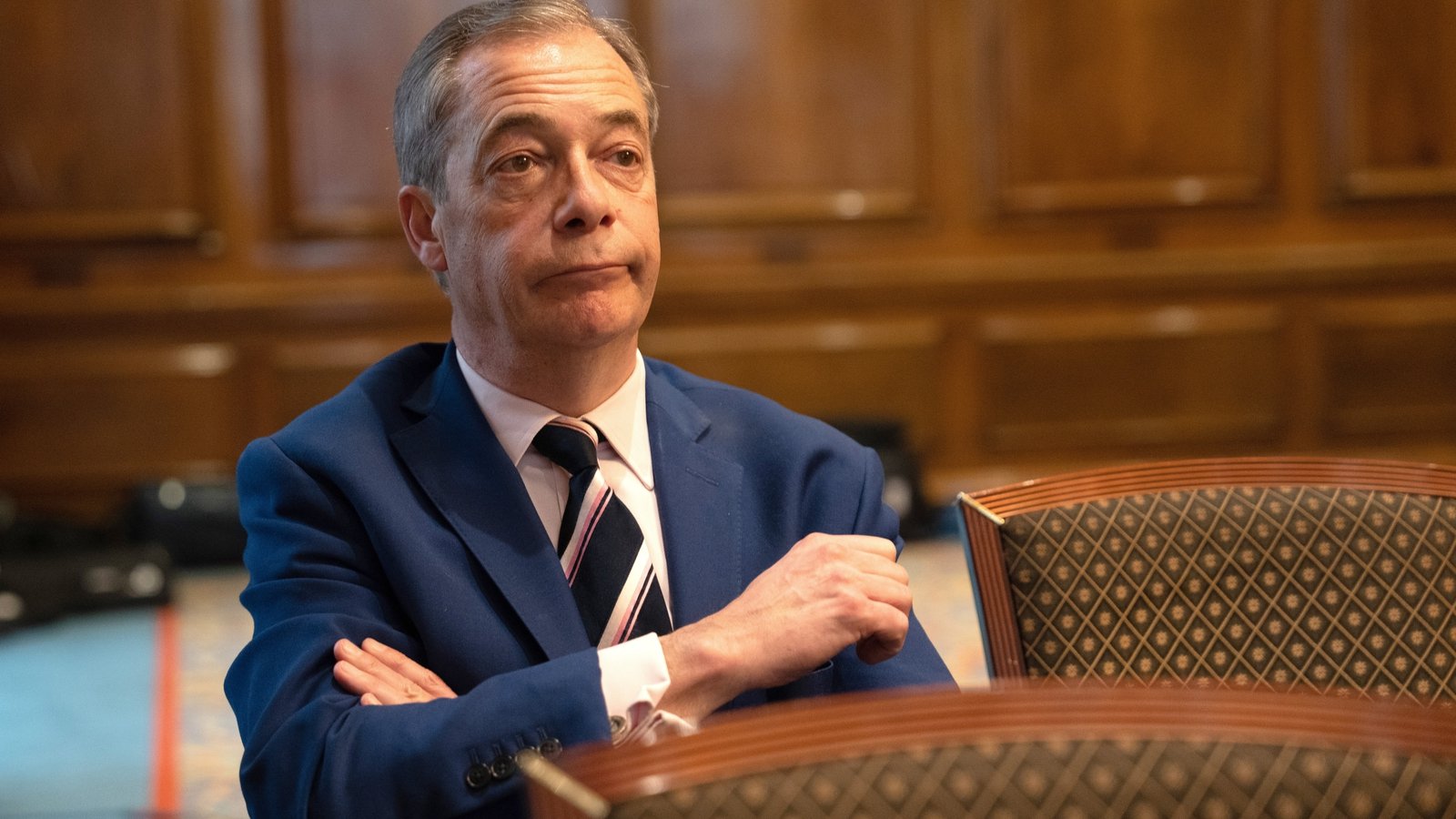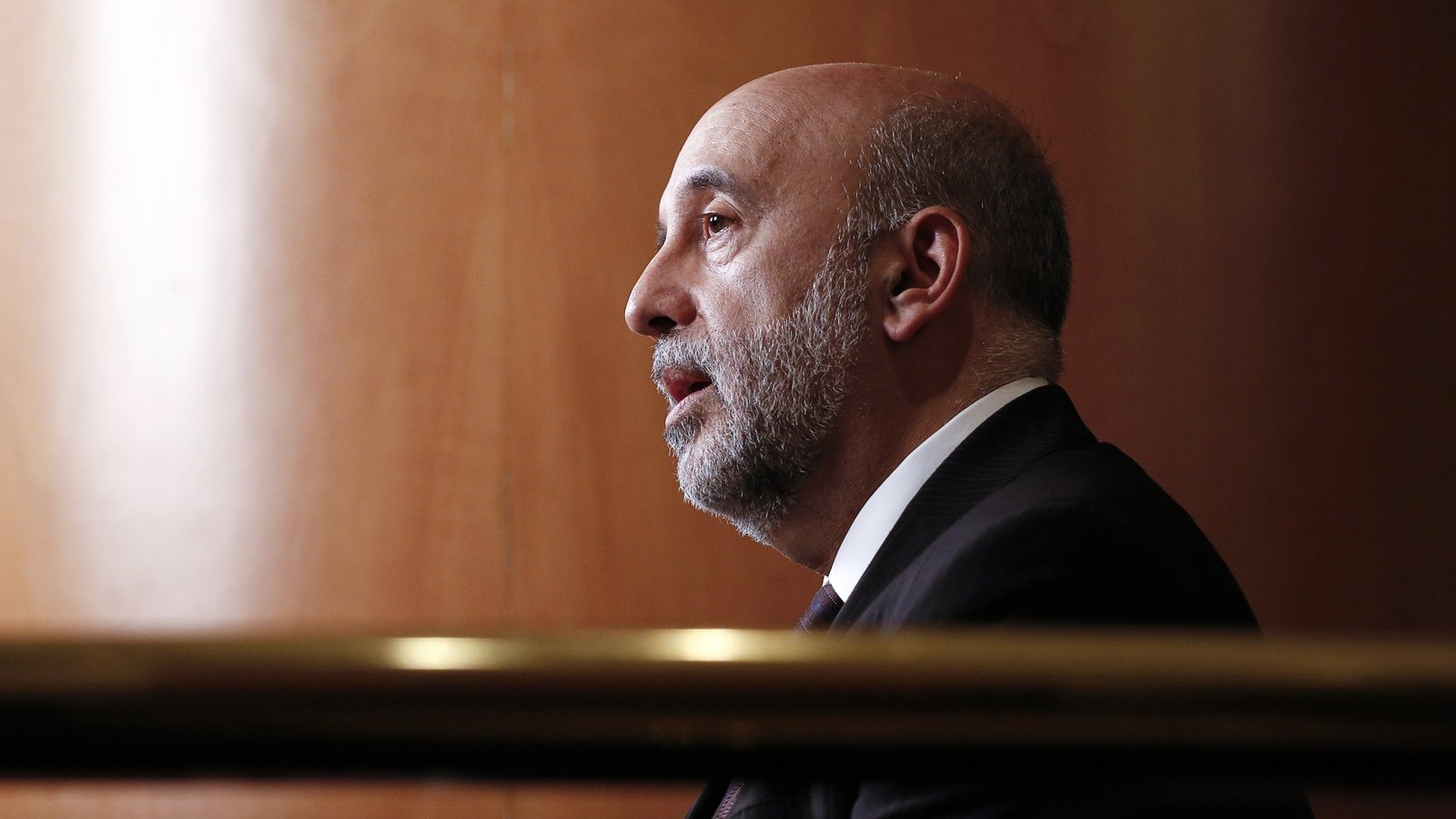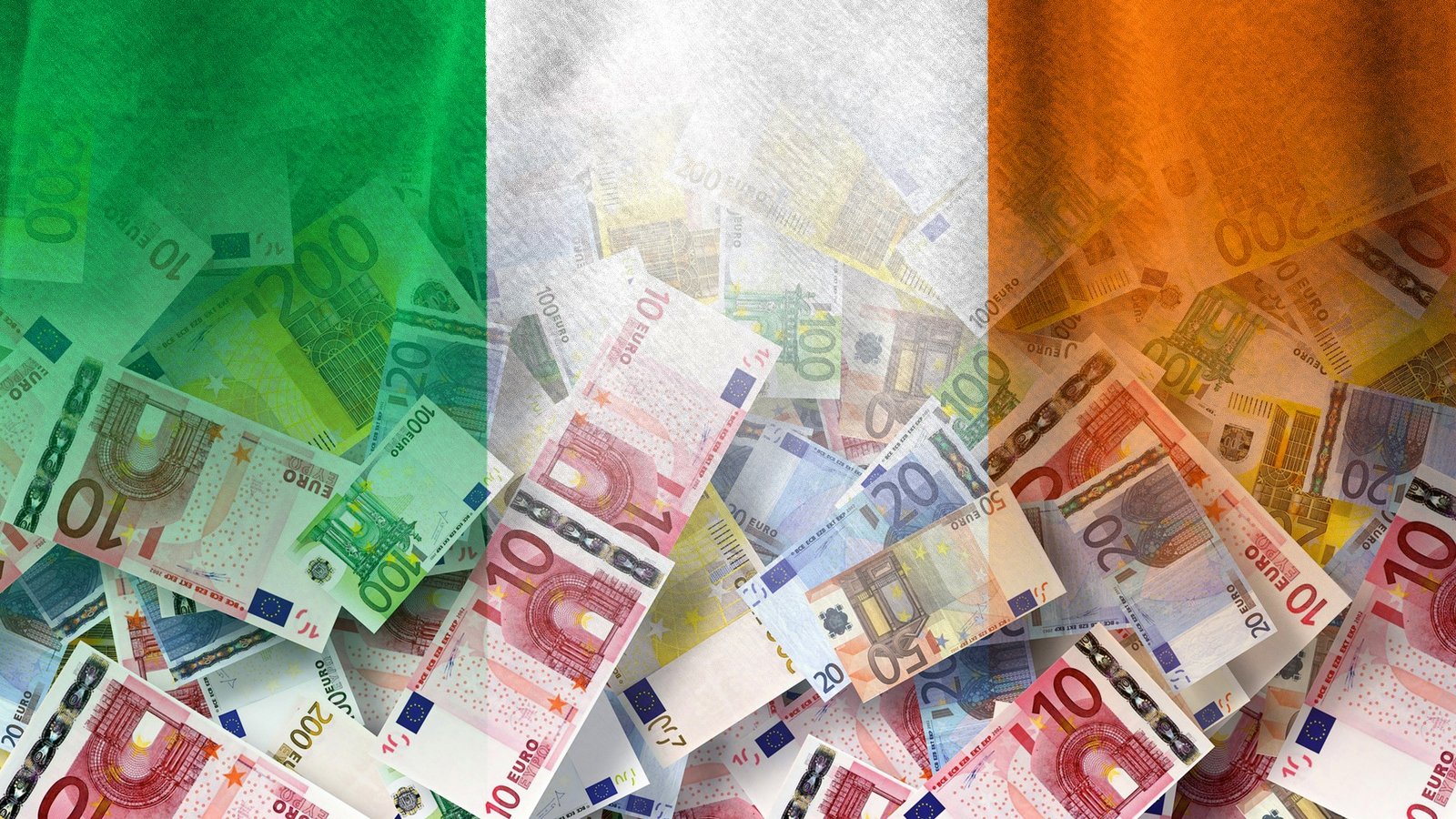How to cut costs and reduce waste
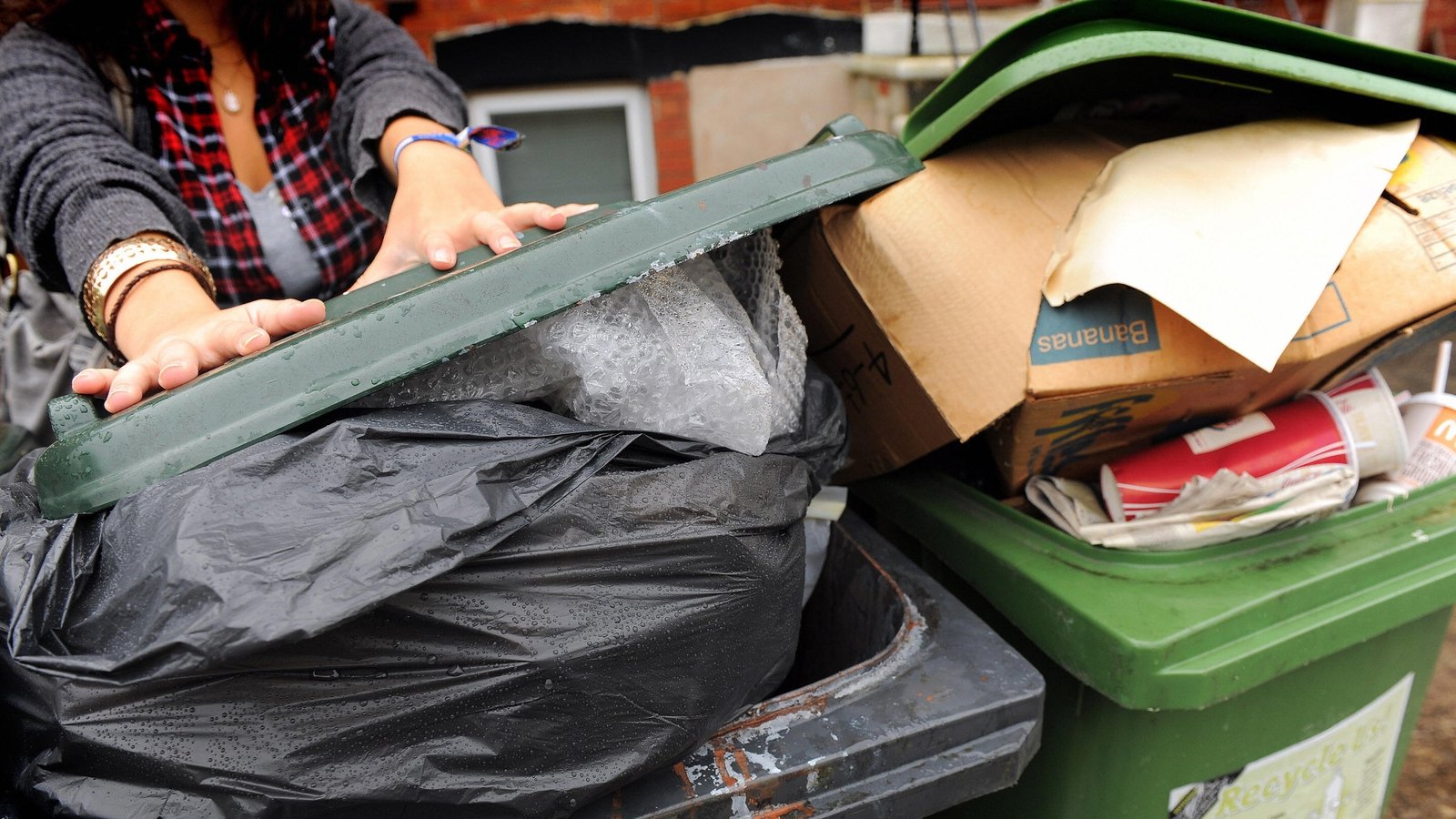
Waste disposal is a lucrative business here in Ireland, with household waste collection companies sweeping up around €350 million in revenue every year.
There are around 40 companies that collect household waste across the country. Ten of these are quite small and would count their customers in the hundreds rather than thousands. Many of these companies also collect commercial waste.
The latest data from the Environmental Protection Agency reveals that Ireland generated 3.17 million tonnes of waste in 2021.
Of this, 57% came from households and 43% from commercial and public service sources.
The four biggest companies for household waste collection here are Panda, Greyhound, Bord na Móna and Country Clean.
For commercial waste, Panda, Bord na Móna, Thorntons Recycling and Keywaste have the most customers.
The number of providers you have to choose from will depend on where you live – though most will have a choice of at least two.
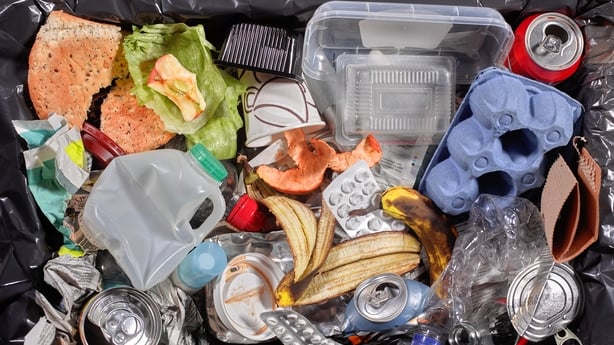
Panda
Panda, which is owned by Beauparc, is the largest household waste collector in the country.
It has over 300,000 customers, and collects over 60,000 tonnes of waste from homes every year.
Back in 2021, the company was sold to Australian financial services giant Macquarie for €1.3 billion.
The latest accounts for Beauparc show its operating profits were €4.4m in 2021, after over €52m in payouts were made when the firm was sold.
Cost to customers:
When comparing the price of waste collection companies it is important to look at the weight allowances per package, so you are comparing like-for-like. Most companies also offer a flexible pay per lift option which may work better for some households.
Panda Recycling’s household bin collection services start from €18.99 per month for a household of one to three people. This includes general waste, recycling and compost. The waste allowance is 25kg, with excess waste charged at 19 cents per kg. This plan would cost €227.88 per year.
The next plan is for a household of three to five people and is Panda’s most popular. The waste allowance increases to 46kg per month, while the price rises to €26 per month. As with the previous plan, excess waste is charged at 19 cents per kg. This plan would cost you €312 annually.
Panda’s final plan is designed for a household of over five people and is €29 per month with a waste allowance of 59kg per month. This plan would cost €348 per year.
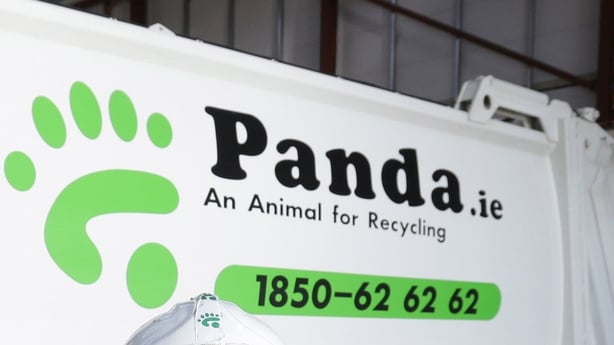
Greyhound Recycling
Greyhound Recycling is the second largest household waste collector in Ireland, with over 150,000 customers across Dublin.
The company increased its prices last year, and they were not alone.
The move sparked criticism among many, including Sinn Fein Cllr Daithí Doolan.
He said the price hike by Greyhound was “driven by nothing else but greed”.
“None of the waste collection companies are struggling to maintain profits,” he said in a statement at the time.
Cost to customers:
Currently there are three plans available on the Greyhound Recycling website.
It states that the basic plan is suitable for a household of up to three people. For €21.50 per month you are allowed 32kg of general waste and no extra charge for your green and brown bin – for recycling and organic. This plan would cost you €258 for the year. Excess weight on all plans is charged at 30c per kg.
The second plan, Greyhound’s most popular, is €24.50 per month. It said this plan is suitable for a household of three to five people, with a monthly general waste allowance of 42kg. This would cost you €294 for the year.
The final plan is designed for households of five or more, with a cost of €28.50 per month. The general waste allowance rises to 65kg per month. This plan would cost you €342 for the year.
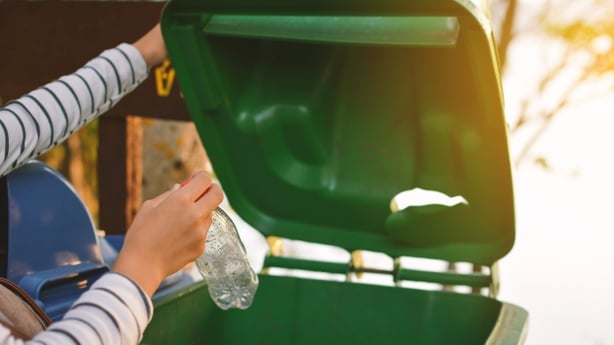
Bord na Móna
Bord na Móna has 130,000 customers across Leinster and North Munster, making it the third biggest household waste collection company here.
Cost to customers:
The pricing for Bord na Móna’s bin collection service varies based on your location. For the standard plan, which is the most popular, the cost is either €300, €320 or €360 per year depending on where you live.
This is a flat fee that covers all household waste collections up to a weight limit of 215kg per quarter.
When you enter your Eircode on its website you will get a breakdown of the costs, and what is included in each plan.
There are also ‘pay by weight’ and ‘pay by lift’ options for people who might not need to put a bin out every week, which can work out cheaper.
Country Clean
Country Clean is the fourth biggest waste collection company for households, with 100,000 customers across the Munster area.
Cost to customers:
Country Clean offers both standard and smaller sized waste and recycling bins.
The standard 240l waste and recycling bins cost €31.75 per month, while the smaller 140l waste and standard recycling bin costs €28.25 per month.
The weight allowance for a standard 240l waste bin is 520 kg per year, while the allowance for the recycling bin is 240kg per year, and the compost bin is 260kg per year.
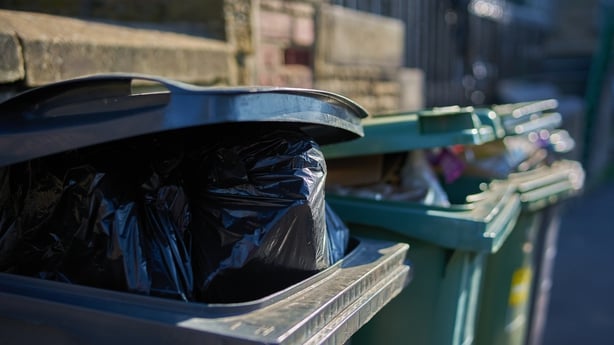
How to choose your bin provider?
First, find out which waste collection providers are available in your area. You can find this out by visiting their websites.
Next, you should start comparing prices. Make sure to note down the weight allowances for each company and take this into account when comparing costs. Pay per lift options might also be worth considering for some.
Conor Walsh of the Irish Waste Management Association (IWMA) said you need to find a service that works for you and your circumstances.
“If you’re a pensioner living on your own, you’re probably going to have very little waste, so you want to find a price plan that is less about service charge and more about pay as you go.” he advised.
“If you’re paying per kilo or per lift and maybe you’re only putting out a bin four times a year, you’ll find a plan that works for that,” he added.
Is it worth switching bin provider?
Many waste collection companies have upped their prices recently, so it is always worth shopping around.
Mr Walsh of the IWMA said underlying costs have been rising for waste collection companies, in particular labour and fuel costs.
But he believes there is strong competition in the Irish market.
“We’re the only country in the world where every bin is weighed. We’re the only country in the world that can tell our customers what their weights are and we can charge by weight or we can charge by lift.
“We just need to get the message out there about how important it is to segregate our waste, but we’re quite advanced in Ireland,” he added
How much choice you have will depend on where you’re living.
What about brown bin charges?
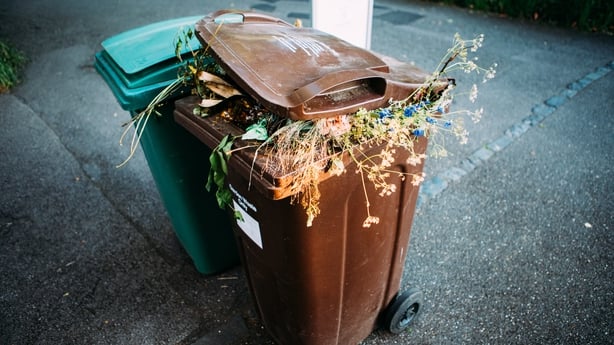
Last year, Panda received huge criticism for introducing a brown bin charge for thousands of customers.
The move has been defended by the Irish Waste Management Association.
“You should be charged less for the brown bin, but you shouldn’t be charged nothing,” said Mr Walsh of the IWMA.
He said people should be encouraged to prevent waste.
“People should be encouraged to leave garden waste in the garden,” he said.
At the time, Jennifer Whitmore, Social Democrats Spokesperson on Climate and Biodiversity said people should not be penalised for using their brown bins.
“I think companies need to look at their profits in the round and not specifically look at what it costs for them to lift and collect a brown bin say versus what it costs to lift and collect the rubbish bin,” she said.
Should the waste service be renationalised?
The move by Panda last year sparked calls for the re-nationalisation of the country’s waste collection service.
At the time, Ms Whitmore said she believed the system should come under the fundamental services that the State provides.
Bríd Smith, Solidarity-PBP TD, said that the privatisation of waste has been “disastrous” for the environment, workers and householders, and also called for its renationalisation.
She condemned Panda Recycling’s decision to charge for organic waste despite its “enormous” profits.
Panda “is the biggest waste provider in the country”, Ms Smith said.
“You’re disincentivising people” from recycling, she added, during heated exchanges with the Tánaiste at time time.
Last April, the Tánaiste told the Dáil that Ireland has made “extraordinary progress” in how it disposes of waste.
Micheál Martin said that the last two decades showed “continuous progress”.
But he said that Government “will keep the situation under review”, especially in relation to charges.

